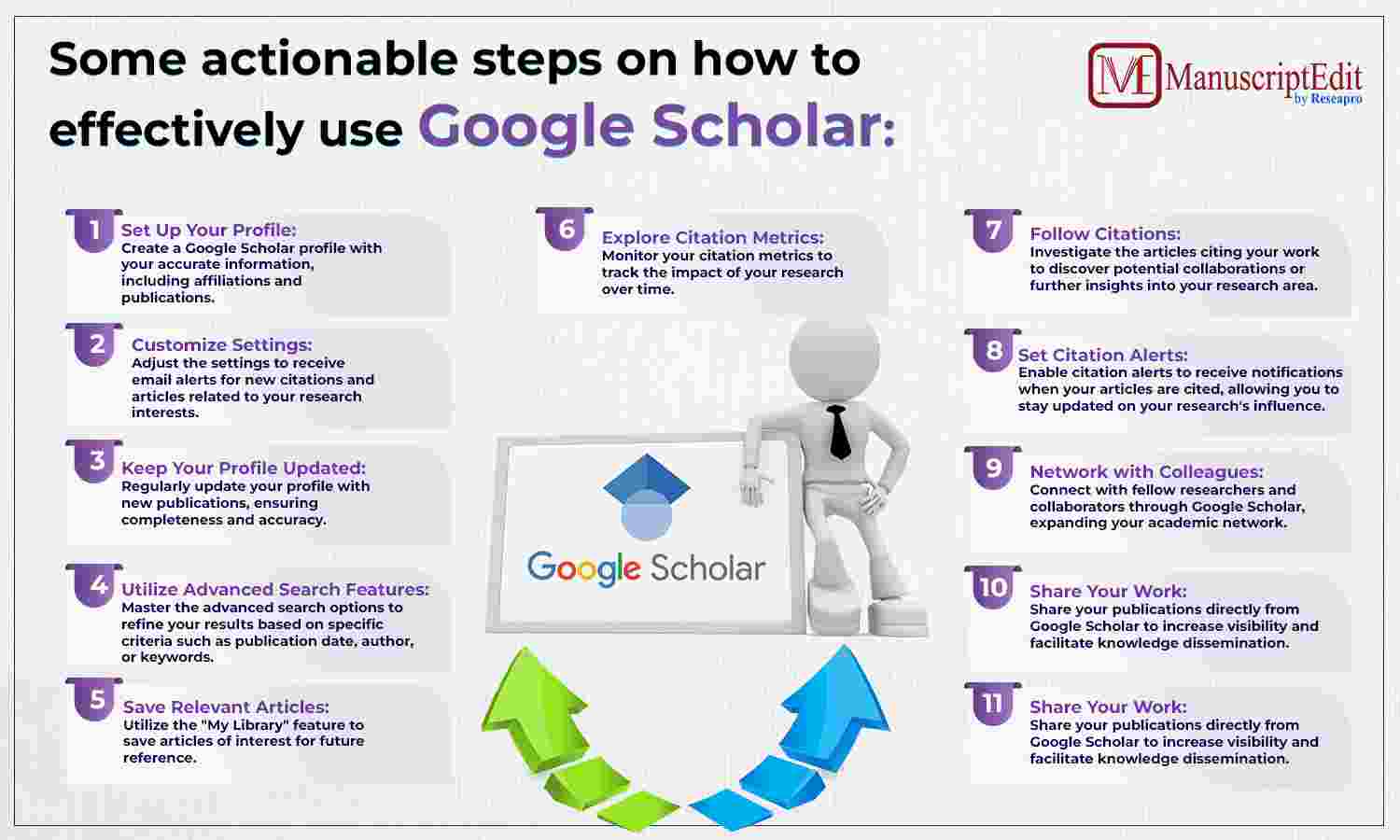|
Getting your Trinity Audio player ready...
|

Google Scholar is a popular tool for finding and monitoring academic papers, citations, and impact. It is essential to assessing research quality, impact, and reputation in academia.
This blog examines the importance of Google Scholar citations in academic recognition and promotion and makes the case that they significantly impact reputation and career development.
The Importance of Citations in Academic Promotion
Citations are vital to academic advancement as they gauge the effect and influence of research. Higher citation counts are frequently associated with more recognition and respect, as they indicate the scope and importance of a scholar’s body of work.
Citation measures, such as Google Scholar h-index and citation counts, are frequently used by promotion committees to assess a candidate’s research quality and possible future effects.
What Is Google Scholar, and How Do I Use It?
A free search engine for academic publications is Google Scholar. Look up books, theses, articles, and conference papers in various educational fields—type in the titles of your documents, authors, or keywords.
Apply date, relevancy, and citation count filters to narrow down results. To find fresh research, look through author biographies, related works, and citations.
How to Effectively Use Google Scholar?
 When using Google Scholar, it’s essential to stick to more than just basic search methods. By exploring sophisticated search options like author profiles, linked articles, and citation tracking, you can enrich your research experience and acquire a more comprehensive understanding of your topic, making you more knowledgeable and informed.
When using Google Scholar, it’s essential to stick to more than just basic search methods. By exploring sophisticated search options like author profiles, linked articles, and citation tracking, you can enrich your research experience and acquire a more comprehensive understanding of your topic, making you more knowledgeable and informed.
Use the “Cited by” function to find related papers, track your study’s impact, and set up alerts for new publications.
How do you find the impact factor in Google Scholar?
Use Google Scholar to find the impact factor by doing the following steps:
- Explore the journal name or article title on its website.
- Verify the journal’s h5-index, which is comparable to the impact factor.
- Take note that Google Scholar does not display the classic impact factor.
What Is an Academic Promotion?
A Google Scholar academic promotion is advancing a faculty member’s rank or position inside a university or other educational institution. Associate Professor to Full Professor and Assistant Professor to Associate Professor are joint promotions.
How Does Google Scholar Rank?
Google Scholar ranks documents based on the complete text, author, publication, and citation count. The algorithm also considers the h-index, which assesses productivity and citation impact.
This approach replicates how researchers evaluate scholarly literature, prioritizing relevance and academic influence.
Best Practices for Using Google Scholar Citations
One of the best practices for using citations from Google Scholar is constantly updating profiles and fixing errors to ensure the citation data is accurate and complete.
Furthermore, to thoroughly grasp the effect and influence of research, citations should be combined with other evaluation measures, such as peer reviews and research quality ratings.
Conclusion
In summary, Google Scholar citations significantly impact academic recognition and promotion, affecting reputation and professional advancement. Although they provide insightful information, it is essential to utilize them responsibly, considering any biases and limits.
Google Scholar is expected to adjust as academia changes, adding new metrics and functionalities to enhance the assessment and exploration of research.
References
- https://jalt-publications.org/node/27/articles/5753-setting-effective-google-scholar-profile#:~:text=Some%20universities%20go%20so%20far,them%20from%20selected%20academic%20sources.
- https://harzing.com/blog/2018/11/google-scholar-citation-profiles-the-good-the-bad-and-the-better
- https://www.int-res.com/articles/esep2008/8/e008p061.pdf



